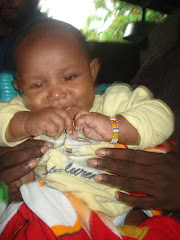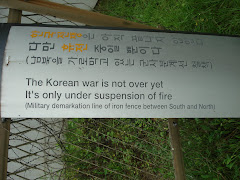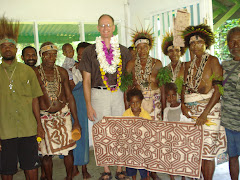Today at lunch I happened to sit with a woman who is the Assistant to the Archbishop of the
 is a group of gay, lesbian, bisexual, transgender people mostly from
is a group of gay, lesbian, bisexual, transgender people mostly from
Welcome to my blog! This space is a chance to share in my travels and ministry and for me to share some of my thoughts and concerns as a Franciscan and as Minister General of Society of St. Francis with you. These are reflections of a modern friar on the road. Look for prayers and other items of inspiration as they move me.
Today at lunch I happened to sit with a woman who is the Assistant to the Archbishop of the
 is a group of gay, lesbian, bisexual, transgender people mostly from
is a group of gay, lesbian, bisexual, transgender people mostly from
February 23—February 26, 2017
San Damiano Friary
573 Dolores Street
San Francisco, CA 94110
February 28, 2017—April 20, 2017
Province of the Solomon Islands
Patteson House
P.O. Box 519
Honiara
Solomon Islands
April 20, 2017—May 2, 2017
Province of the Divine Compassion
The Friary
P.O. Box
6134 Buranda,
Queensland 4102
May 4, 2017—May 10, 2017
Franciscans International
International Board of Directors Meeting
Assisi, Italy
May 10, 2017—May 26, 2017
Province of the Americas
St. Francis Friary
2449 Sichel Street
Los Angeles, CA 90031-2315
May 27, 2017—June 14, 2017
The European Province
Friary of St. Francis
Hilfield
Dorchester
Dorset DT2 7BE
June 14—July 1, 2017
Holiday
The Berge’s
10506 Elliott Road
Snohomish, WA 98296
July 1, 2017: end of term as Minister General
July 1, 2017—January 1, 2018
Sabbatical
COSMIC LITANY OF THE SACRED HEART
Heart of Jesus, worthy of unending honor, alive in me.
Heart of Jesus, from the heart of Mary, alive in me.
Heart of Jesus, center of my heart, alive in me.
Heart of Jesus, desire of the everlasting hills, alive in me.
Heart of Jesus, center and joy of nature, alive in me.
Heart of Jesus, life force of the universe, alive in me.
Heart of Jesus, gate of Paradise, alive in me.
Heart of Jesus, aglow with divine love, alive in me.
Heart of Jesus, loving intent behind every twist of fate, alive in me.
Heart of Jesus, pierced to open, never to close, alive in me.
Heart of Jesus, treasury of mystical wisdom, alive in me.
Heart of Jesus, from whose fullness we all receive, alive in me.
Heart of Jesus, bountiful to all who turn to you, alive in me.
Heart of Jesus, fountain of grace and holiness, alive in me.
Heart of Jesus, source of all consolation, alive in me.
Heart of Jesus, pledge of eternal loving-kindness, alive in me.
Heart of Jesus, mercy upon mercy, alive in me.
Heart of Jesus, source of all compassion, alive in me.
Heart of Jesus, freedom from all fear, alive in me.
Heart of Jesus, full of generosity and healing, alive in me.
Heart of Jesus, my life, my death, my resurrection, alive in me.
Heart of Jesus, unfailing grace to those who live in you, alive in me.
Heart of Jesus, unending hope to those who die in you, alive in me.
Heart of Jesus, in whom there is only Yes, alive in me.
From: David Richo: The Sacred Heart of the World: Restoring Mystical Devotion to Our Spiritual Life (Paulist Press)

1. The version found written on the wall in Mother Teresa's home for children in Calcutta:
People are often unreasonable, irrational, and self-centered. Forgive them anyway.
If you are kind, people may accuse you of selfish, ulterior motives. Be kind anyway.
If you are successful, you will win some unfaithful friends and some genuine enemies. Succeed anyway.
If you are honest and sincere people may deceive you. Be honest and sincere anyway.
What you spend years creating, others could destroy overnight. Create anyway.
If you find serenity and happiness, some may be jealous. Be happy anyway.
The good you do today, will often be forgotten. Do good anyway.
Give the best you have, and it will never be enough. Give your best anyway.
In the final analysis, it is between you and God. It was never between you and them anyway.
-this version is credited to Mother Teresa

Christ Jesus, within us there is a silent longing. And when our inner being becomes dispersed, our thirsty heart dares to say: enable me to live from you, O Christ; gather up my desire and my thirst.




1 comment:
Brother Clark,
Your comments on Lamberth were very encouraging. Also your openness about your vocation and that of the other brothers was reassuring. As I come up on my third anniversary of my life profession, it is refreshing to hear others share their struggles and triumphs.
We met at General Convention in Ohio several years ago.
Sister Edie, FCHC
Post a Comment